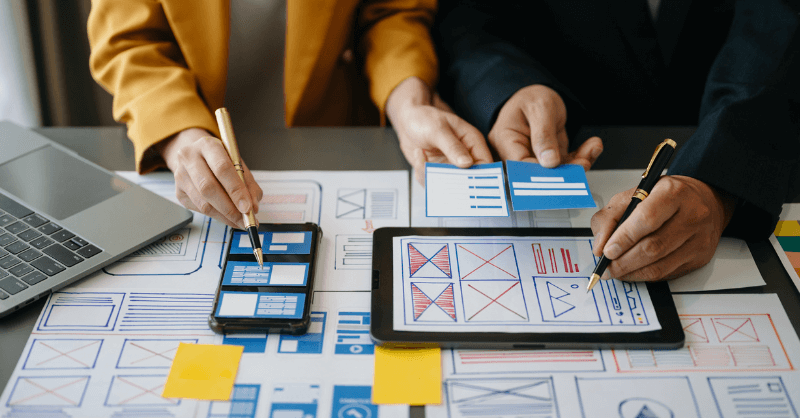Did you recently have an accident that left you with severe injuries? How is the healing experience going so far? For many people, the recovery process can be quite challenging because it prevents them from carrying out daily activities, and oftentimes it makes them feel depressed and anxious.
When you experience downtime due to an injury, you are tempted to dedicate your time to sleeping, eating, and watching TV. However, a lack of activities could have a negative effect on your recovery and mental health. And the last thing you need during your rehabilitation is to develop a mental health issue like anxiety or depression. Despite the limitations your doctors might have imposed, you can still undertake several activities to enhance your mood, improve your well-being, and prevent you from feeling like you’re reduced to your current circumstances.
Only because you’re not as strong as you used to be, remember that it’s all because of the illness. Allow yourself to focus on the healing journey, and don’t self-recriminate. And while you take the time to recover, take the opportunity to try some new things and stay active.
Play board games
You might not be able to leave the house and engage in your usual physical activities with your friends, but you can still spend time with them. An extremely fun activity to try is playing board games. You can choose from a wide variety of board games, and it should be easy to find something that’ll draw your attention. If you don’t have any board games, discuss with your friends what kind of games you’d prefer as a group. You can easily order them online, and most stores deliver in 2 to 3 working days. For beginners, we recommend Monopoly, Dominion, and Settlers of Catan. Or if you are a competitive group who would prefer party games, you can try Exploding Kittens and Unstable Unicorns.
Solve a puzzle
While you leave the puzzle of your accident to the experts, you can pass the time you need to recover by solving some puzzles. Don’t limit yourself to conventional puzzles; you can choose from several types of puzzles. If you want to engage in something more creative and complex, look for 3D puzzles. Besides puzzles, you can also train your brain with games like chess, sudoku, and crosswords. Taking the time to engage in some mental activities will help you take your mind off the long-term consequences of the accident. However, if you want to research what to do next, visit the link could prove helpful because it provides reliable information.
Brain training exercises enhance your mental activity and performance, so ensure you do them as often as possible during your recovery.
Learn some new skills
Another great way to keep your mind sharp is to learn a new skill. It’ll keep you busy, and you won’t have any time to be bored. The Internet is an endless source of inspiration, so you don’t have to leave the house to enrol in any course.
The easiest-to-learn hobbies are:
Crocheting and knitting
If your arms are healthy, recovery is an excellent time to learn knitting. While ordinary, you might be too active a person to stay still for long periods to learn this hobby; now that you must stay on the couch or in bed most of the time, you can learn how to make some home decorations or baby blankets if someone you love is waiting for a baby. Check Pinterest if you want to know how to craft crochet decorations.
Drawing
If you’re one of those people who wish they were better at drawing or painting, take advantage of this period to improve your skills. The best thing about learning how to draw or paint is you don’t need to invest in many supplies. You can order a couple of canvases, paints or pads or paper and stencils online, and you’re good to go.
Learn a new language
Learning a new language is always useful for your career, brain, and social life. Next time you visit a foreign country, you can communicate with the locals in their native language and no longer struggle to read restaurant menus or understand instructions. If you do well at learning a new language, you can reward yourself with a vacation to the country where it’s spoken when you regain your health. Languages like Spanish, French, Russian, German, and Arabic are the most useful as they’re spoken worldwide.
Reading
Another excellent activity that can help you pass the time in a lucrative way is reading. And where do you count that it gets your brain working quicker, regardless of your preferred style? Depending on the topic you select, reading can also educate you on a particular subject. If, on the other hand, you want to read literature, reading becomes an effective stress-relief method. Suppose you don’t want to stash books around the house because you want to keep it clean or you don’t have a large library; you can purchase an e-reader or download digital books on your tablet. E-books are also more affordable than physical ones, and you have access to millions of books on the same device. However, if you’re like us and love the smell of books, you’ll most likely order hardcover books and browse through the paper pages.
Meditate
Meditation is a great skill to acquire and will prove very useful during recovery because it’ll help you calm down the nerves when you hit obstacles. Medical rehabilitation often comes with obstacles, and meditation can help you regain calmness and focus your energy in the right direction. Use online tutorials to learn meditation techniques, and try several to see which works best for you.
Final words
We hope that reading this article offered you some ideas on how to spend your time fruitfully during your recovery. If you have other suggestions, feel free to share them with our community.







 June 17, 2023
June 17, 2023






